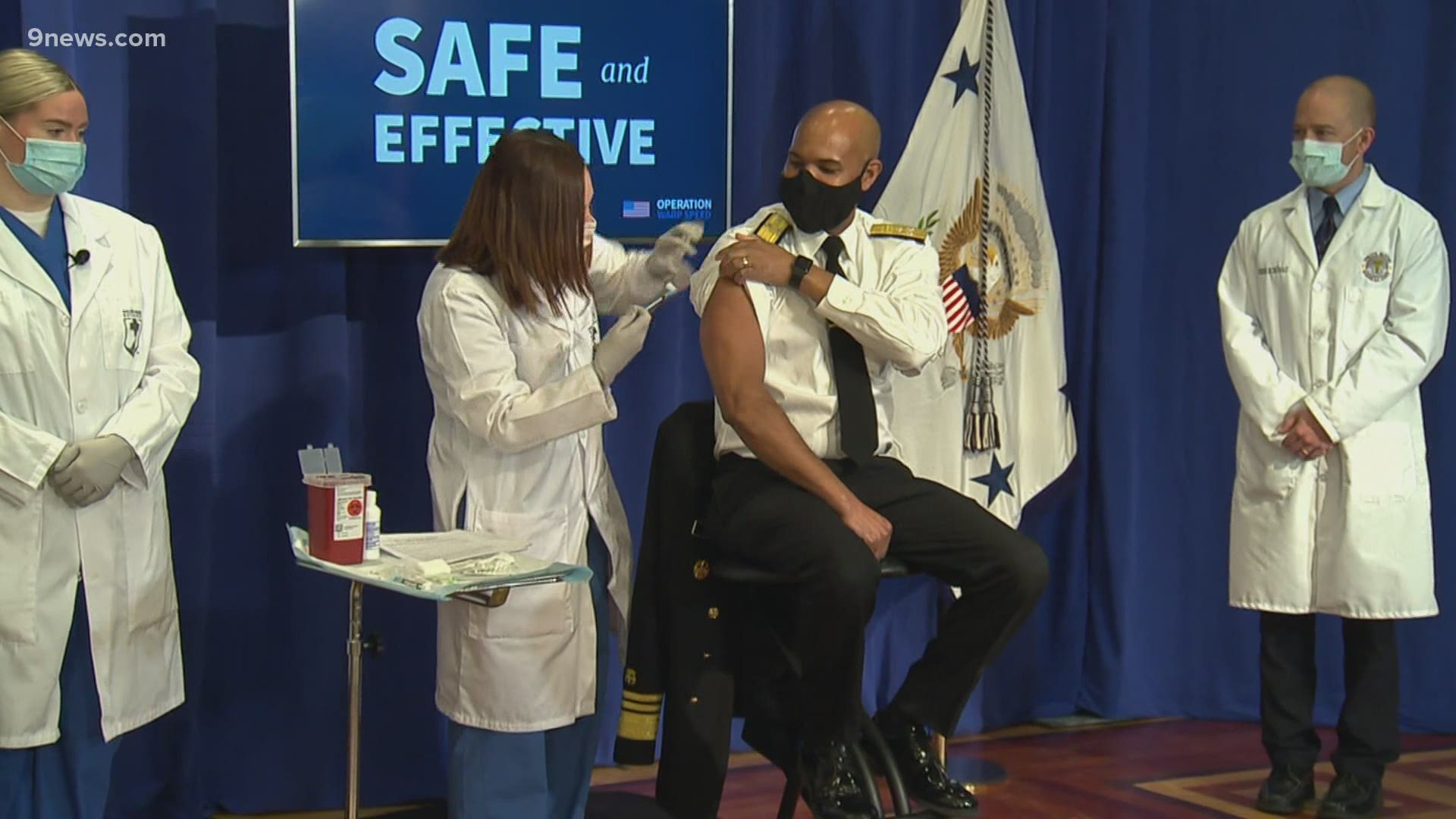COLORADO, USA — Frontline health care workers at UCHealth's University Colorado Hospital received their initial doses of Pfizer’s COVID-19 vaccine on Dec. 14, and Shavona Gunn, a medical assistant, volunteered to administer the first shot.
“They just came over to [us] and asked, ‘Who wants to give the first vaccine and be on the news?’" Gunn said. "And I was like, ‘I’ll do it.’”
The significance of a Black medical professional administering UCHealth’s first vaccine wasn’t top of mind for Gunn, but days later, that importance started to set in.
“I am glad that I can be a proactive voice,” Gunn said.
A recent Pew Research Study found that while 71% of Black Americans knew someone who has died of or been hospitalized with COVID-19, only 42% said they would get a vaccine.
Dr. Rosemarie Allen, 9NEWS racial equality expert, said the reasoning behind those numbers could be attributed to a painful, complicated past and present.
“The reason that Black people are more likely to die from COVID is because of comorbidities that are a result of historical and systemic racism,” Allen said.
These comorbidities are represented by inequities in healthcare that Allen explained have resulted in mistrust, leading many, including Allen, to seek medical professionals who understand the plight.
“As much as I can, I try to get African American doctors or doctors who are very familiar with the experience of African Americans,” Allen said.
She looks for doctors who are familiar with troubling statistics, like one from the Centers for Disease Control that showed the number of pregnancy-related deaths in Black women during childbirth was four to five times higher than white women.
Allen also looks for medical professionals familiar with historic examples of racism, like the Tuskegee experiment, where researchers let hundreds of Black men with syphilis go untreated to study the disease's progression.
After getting the COVID-19 vaccine live on television last week, U.S. Surgeon General Dr. Jerome Adams used the experiment to explain why there may be vaccine mistrust among the Black community.
“The shameful Tuskegee experiments occurred within many of our lifetimes,” Adams said. “To truly promote confidence in these vaccines, we must start by acknowledging this history of mistreatment and exploitation of minorities by the medical community and the government.”
Without that understanding of history among medical professionals, confidence in the system could be harder to rebuild in the middle of another historical moment, where more lives are on the line.
“My message would be that I understand,” Gunn said. “I understand where everybody’s coming from, but they need to think about people that they love that could possible get this and pass from it or get really, really, really sick.”
UCHealth said over the past several months, they have focused on outreach, webinars and distribution of informational materials about COVID-19 vaccine studies to local organizations servicing communities of color.
SUGGESTED VIDEOS: COVID-19 Coronavirus

